We present to you an interview with Cristina Souza about her missionary experience in the Central African Republic.
(The interview is in Portuguese).
We present to you an interview with Cristina Souza about her missionary experience in the Central African Republic.
(The interview is in Portuguese).
Sharing God’s love with others, receiving and giving, have determined our missionary vocation (Vicenta Llorca, Comboni Missionary Sister in Ethiopia for more than 40 years and Pedro Nascimento, Comboni Lay Missionary, two years in Ethiopia). As he did with Abraham, also to us, through prayer and personal discernment, God said: “Leave your country and go to the land that I will show you” (Gn 12:1). Our destination was Ethiopia, a country full of sunshine and hospitality. Ethiopia is a beautiful country, rich in history and culture, full of traditions and many peoples, with great linguistic diversity.
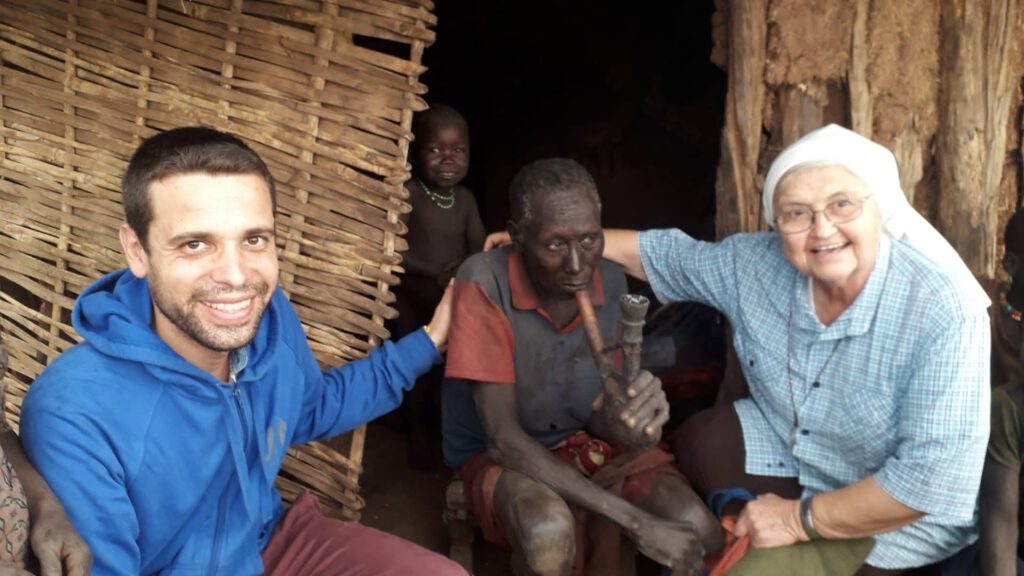
Benishangul-Gumuz is part of one of the regions of Ethiopia and one of the tribes present here is the Gumuz, a people of strong character, ready to fight to defend themselves in many ways. Our missionary work is especially among the Gumuz.
Our first impression was very good, as we always wanted to share our life with such a simple people. The community of the Comboni Sisters, located in Mandura, offers education, health care and catechetical pastoral care. The community of Comboni Lay Missionaries (David Aguilera and Pedro Nascimento) lives with the Comboni religious in Guilguel Beles, ten kilometers from Mandura, and tries to help both communities in the areas of education and catechetical ministry, as well as in the care of some of the sick.
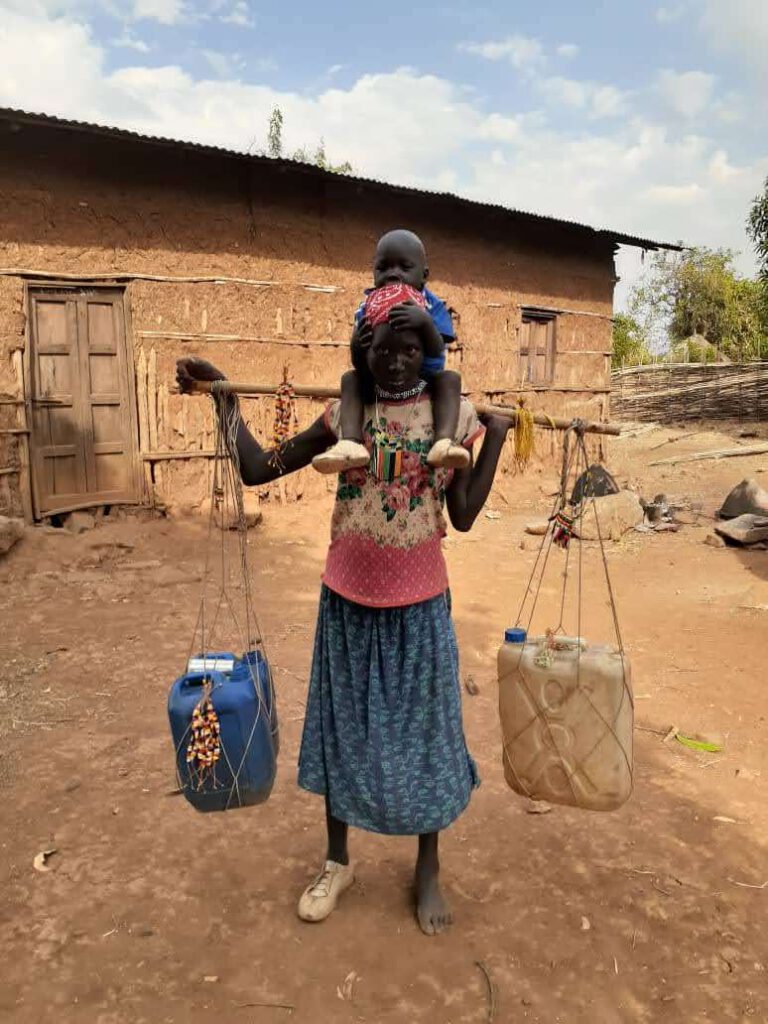
Vicenta and Pedro work in pastoral and social service, since the person is complete with the development of the soul and body. One of the activities we carry out together is the accompaniment of the catechesis of women in their spiritual, human and material development. We know that women have an important role in the transformation of society and here they need to be aware of this. Gumuz women work very hard and are often left behind in opportunities such as education, where educational attainment is not a priority, especially for women and girls. Above all, they have to work in the fields, collect firewood for cooking, carry water from the spring or river, carry heavy sacks of cereals (the fruit of their work in the fields), take care of their children, cook…. The life of the Gumuz woman is difficult and full of sacrifices and hard work.
We meet every week with a group of women who have chosen a name for the group: “Peace Builders”, a name due to the war situation that we have been living for more than two years in our area. In this group we share the Word of God, pray for peace and have coffee together with the economic collaboration of all, and we become close in our experiences of pain and suffering, strengthen our friendship, share dreams and aspirations for the future. These meetings give us the possibility to get to know each other and to be closer to each other. It is our desire, according to our possibilities, to develop activities that can help women in the economic part, since they have an important role in the maintenance of the family.
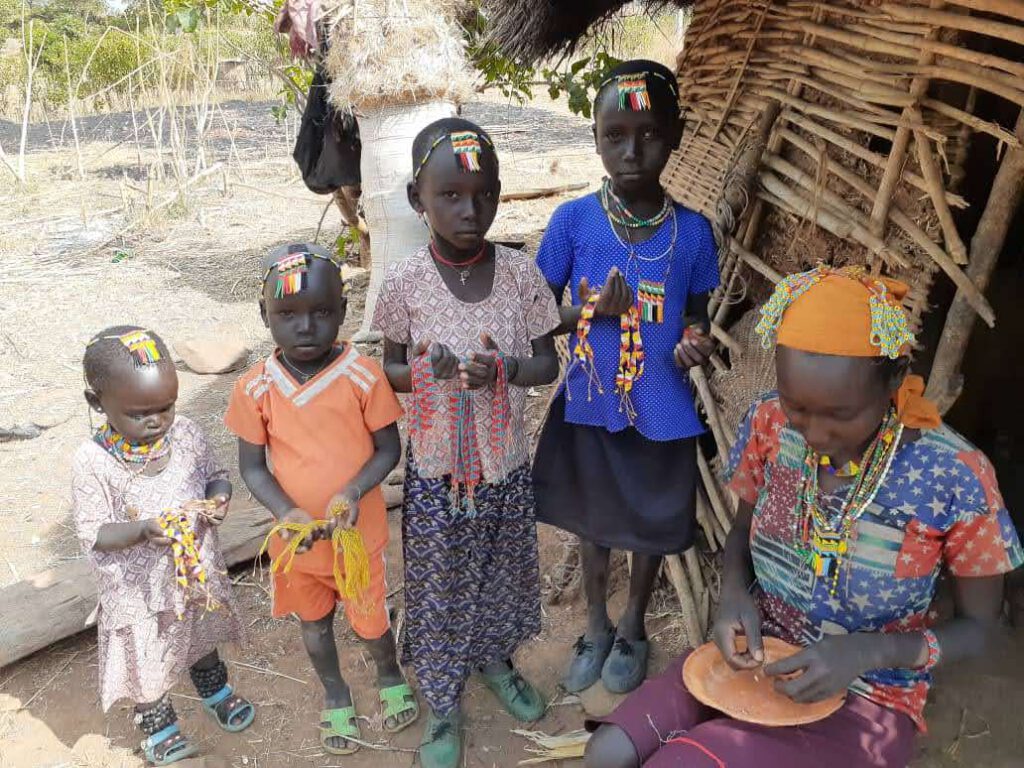
All this is very beautiful and attractive, but human life is made of happy moments and painful moments, days of light and days of darkness.
Due to ethnic clashes, especially over land ownership, social stability has worsened, many have been killed, villages have been burned, some crops have been stolen by opportunists, many innocent people have been imprisoned without knowing the reasons, schools and medical posts have been closed due to insecurity, for fear of students being attacked by rebels and teachers and nurses attacked and kidnapped, as most of them belong to another ethnic group. Unfortunately, this has been our reality for the past two years, with times of peace and times of conflict and insecurity. However, whether we live or die, we belong to the Lord (Rom 14:8) and He is always with us and accompanies us.
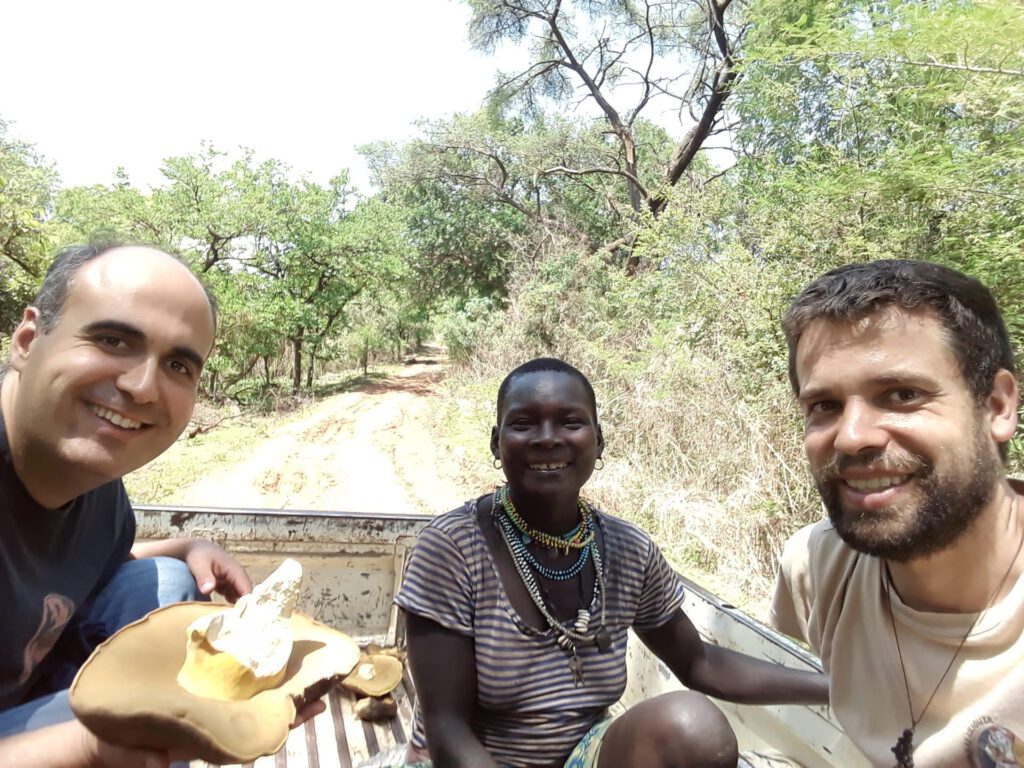
In the Sisters’ mission, some women asked for protection for few weeks, staying there to sleep. The situation worsened and they decided to escape to the forest, where they were able to hide. When the situation calmed down, little by little, the families returned to their huts. As we have already said, this situation has been repeated for two years and together we have experienced pain, insecurity, but also God’s protection. The works of God are born and grow at the foot of the Cross, as St. Daniel Comboni used to say.
None of this was foreseen when, full of illusions, we came to this mission, but we decided to make common cause with this people, to share the good and the bad moments, we decided to stay here and abandon ourselves in God’s hands. We have lived through many difficult moments and our presence here, in the midst of difficulties, is intended to be a testimony of fidelity to God manifested in fidelity to the people with whom we share our lives. It was Jesus who told us: “Behold, I am with you always, to the close of the age” (Mt 28:20).
In the midst of pain, of seeing the suffering of those who escape, of those who mourn for their loved ones, either because they have died or because they are deprived of their freedom, all this has become a time of grace that helps us to strengthen our faith and fidelity to a people who live in times of suffering. Making the pain of others my own shows us how important they are to us, how much we love them. St. Daniel Comboni taught us: I make common cause with you and the happiest day of my life will be the one when I give my life for you.
Right now peace talks are taking place between the government and rebel groups, schools and medical posts (some) are beginning to open. We are hopeful for times of peace, happiness and prosperity.
Pray for us and for the people of Ethiopia, because we cannot lose hope; pray that we will find support to develop economic activities with women and help families in need; pray for peace and fraternal communion.
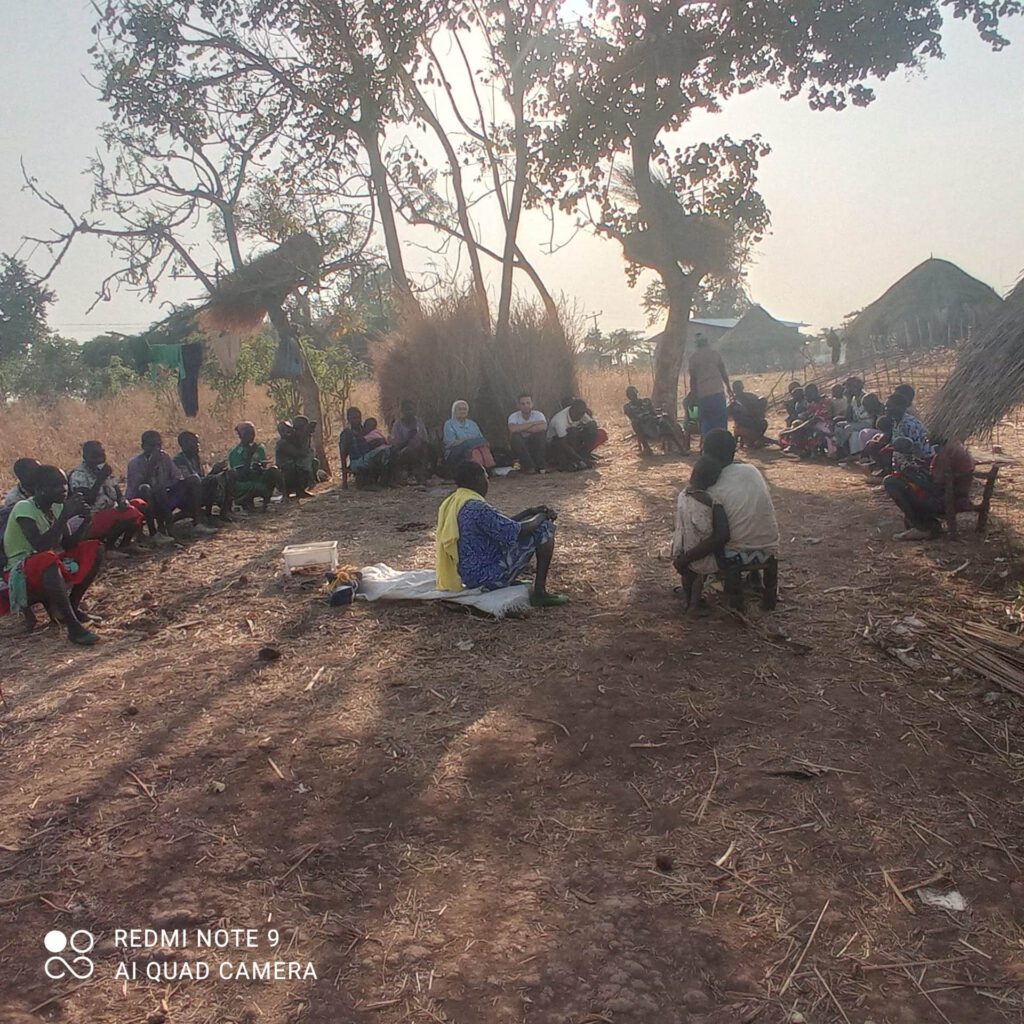
Vicenta Llorca, Comboni Missionary Sister and Pedro Nascimento, Comboni Lay Missionary.
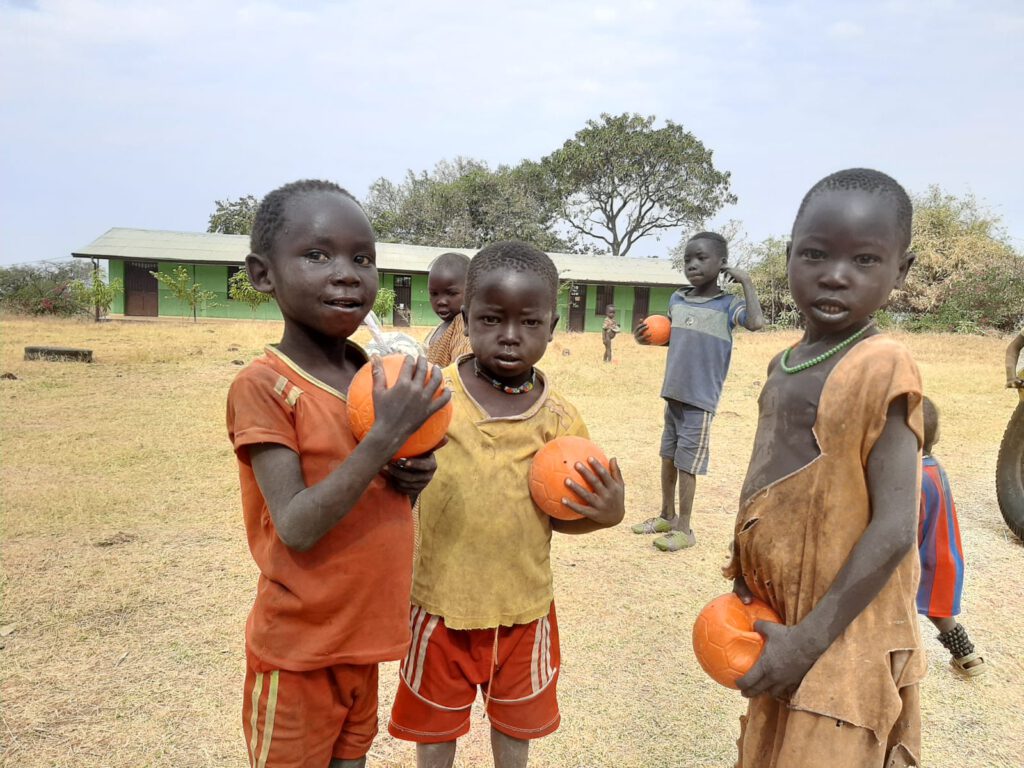
Our school time, especially infant and primary school, usually marks our lives in one way or another. Great memories pile up: friends who are a big part of who we were, teachers who touched our hearts and opened paths we had not even imagined until then… In general, a shared life that filled us with passion and joy and that we will almost always consider as the best stage.
However, in Ethiopia, school can have a more complete meaning.
In the region where I live, Gumuz, the Comboni family has 5 kindergartens (3 run by the Comboni Fathers, 2 by the Comboni Sisters) and an elementary school (run by the Comboni Sisters). All these centers were requested by the local government itself, more than 20 years ago, which understood that this underdeveloped region needed educational spaces that would fulfill two objectives: on the one hand, to promote education in order to be able to guarantee an autonomous and dignified future; on the other hand, to create spaces where boys and girls of all the ethnic groups present in the area could coexist, in equality and friendship, so that the division (so present and so deep in the region) would disappear from the pillars of life (childhood and adolescence) and the idea of complete fraternity would be fostered.
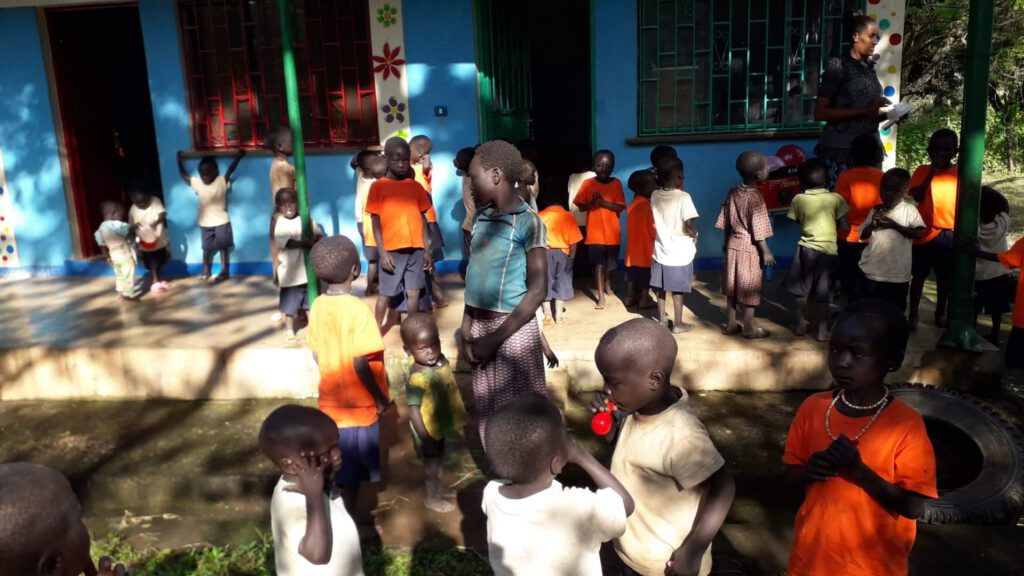
This has been the objective of the Comboni Family all these years, from the general educational plans to the daily work: to create a place where living together is as important as the acquisition of knowledge and skills.
However, the social reality has changed a lot in the last two years. When I arrived in Ethiopia, this region was in the midst of an ethnic conflict between ethnic groups (with killings, displaced people, burning of houses, etc.). When the situation was normalizing, Covid-19 appeared to break the normality, close everything and spread panic (which had already become a regular “visitor” in this area). And, without having managed to stop this problem, a new ethnic conflict, even more serious than the previous one, struck the life of the inhabitants of the region. The problems that we found in the first conflict multiplied, expanded and knew no religion, age or sex to have a little mercy. The day to day life was dominated by a panic already known, but that reached unsuspected limits. EVERYTHING was locked again with the key of fear, violence and discouragement.
The situation demanded a response, and the school of the Comboni Sisters, which is the one I am writing about, became more than a center for living together, it became the ” Hope School”.
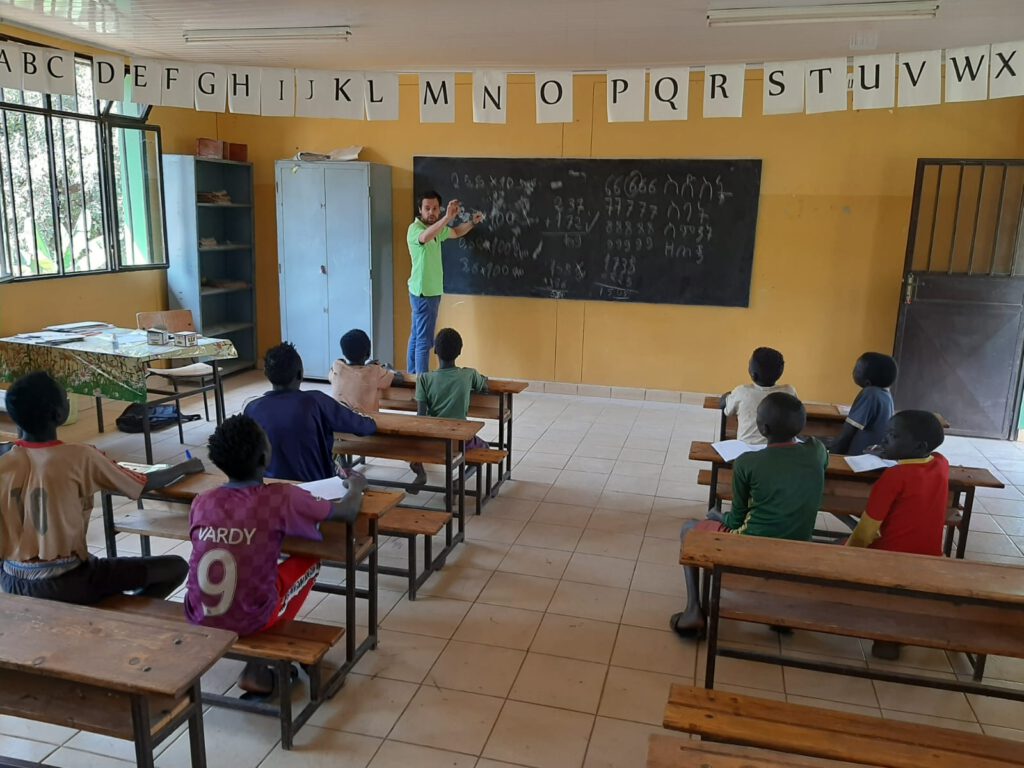
Facing the reality of violence, many people, mainly women, children and the elderly, chose to leave their homes. Many went to hide in the forest, but the vast majority of those who lived around the school, almost instinctively, and out of enormous trust in the sisters, chose to take refuge in masse in the school. It was amazing to see how they entered by dozens, or hundreds, with the few things they could grab before escaping, in an improvised diaspora, carrying belongings, children, babies, grain, animals, etc. The school opened its doors, and became, more than their home, their refuge, since, more than comfort, they sought security. The classrooms were emptied and transformed into places to sleep, cook, eat and receive care; as well as other spaces and common areas, even the courtyards and fountains.
As the weeks passed, the situation gave some respite; people returned to their homes, but not to normality. Fearing that their belongings might be looted, they feared mainly for the grain they had collected throughout the year. They again placed their hope in the school, which once again opened its doors so that they could take the grain, in hundred-kilo sacks, to be stored in the only place they trusted at the time.
This situation was especially serious for the boys and girls, who were living in fear and feeling unprotected. The sisters, aware of this, put the school back at the service of the children, creating a space of trust. Despite the fact that officially all the schools in the area were closed, the doors of our center were opened almost daily to give tutoring and review classes, to welcome anyone who came and allow them to paint, draw, read or write; and, what was most successful, to organize (or rather, to improvise) games and sports activities. At that time, the most important thing was not that the children and young people learned or were evaluated, but that they could arrive to a place where they felt safe, excited, with the joy that should reign at this stage of life. That they could play, interact in peace and tranquility and feel embraced and comforted was the priority; in short, that they could be what they are, boys and girls, forced to grow up by a harsher reality than they should have known.
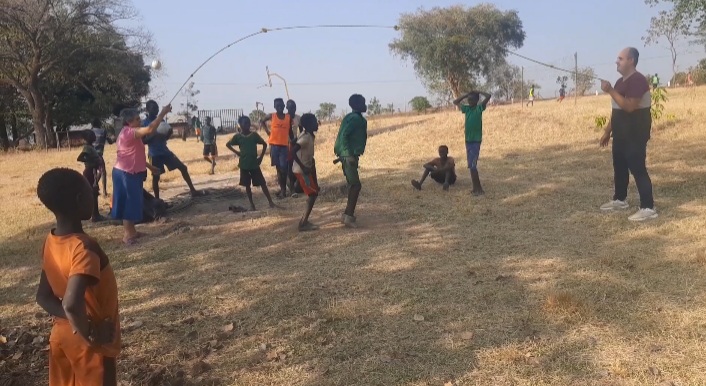
Throughout this process, my missionary mate (Pedro) and I wanted to be involved to the maximum (even though sometimes it was impossible for us to move because of the danger of the ten kilometers of road that separated our house from the school, due to attacks, raids, shootings, etc.). Our daily work, our illusion and our strength were mainly focused on accompanying and helping to carry out the daily activities for boys and girls; as improvised teachers, sports coaches, monitors, chaperones, and everything else we could imagine, we tried to offer a space of welcome and hope to everyone who crossed the doors of the street.
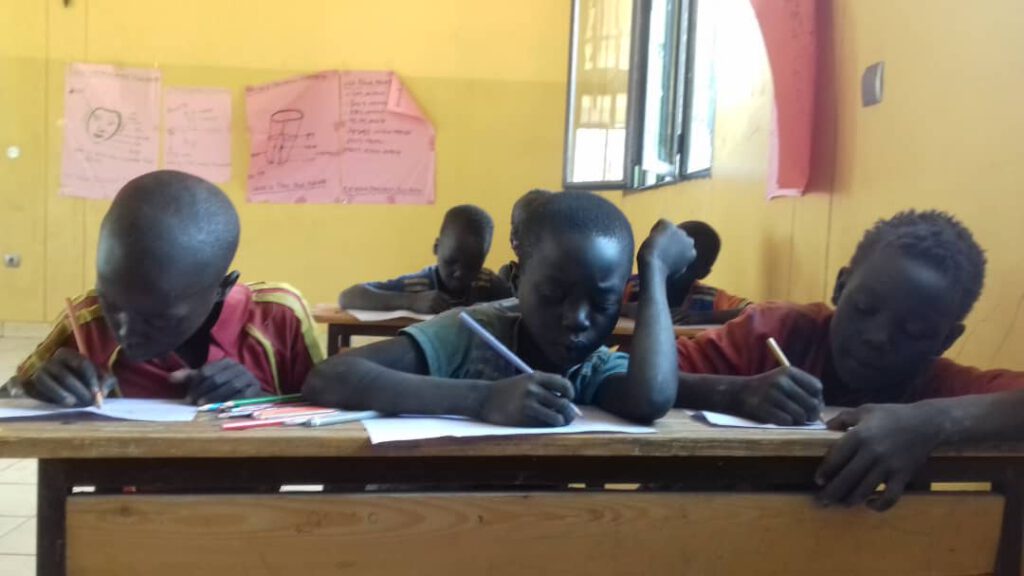
Tomorrow, February 23rd, and after having stabilized the situation, the school officially opens its doors for the new school year (having lost almost half a year). The students, from 3 years old to the end of primary school, will return to their classes. In this return, the nightmare will be behind them; and I doubt that any of them will cry at the doors of the school. On the contrary, they will be eager to return to the place from which they never felt apart; the place that was for them the only space of tranquility and carefree. Parents, for their part, will feel more relieved than ever, since, if in the moments of greatest torment they trusted blindly to protect their sons and daughters (the most precious gift they have), the return to teaching will fill them with renewed enthusiasm.
That is why, although it has another name, I have preferred to baptize it as “Hope School”.
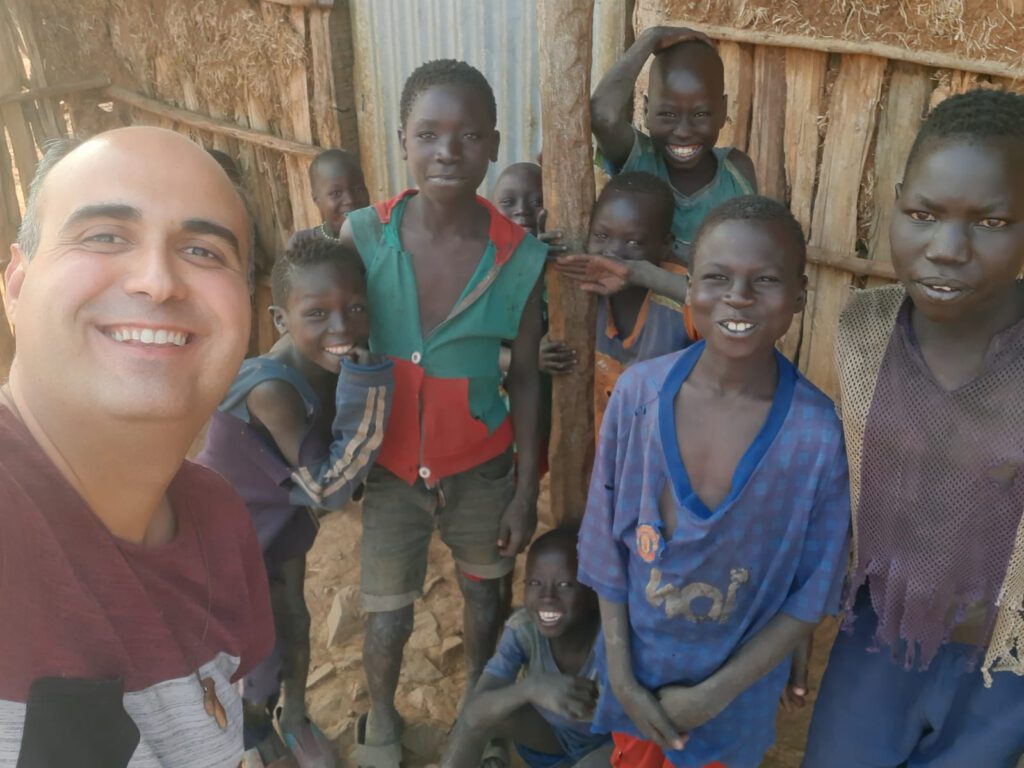
David Aguilera Perez, Comboni Lay Missionary in Ethiopia
Last January 31 we transmitted live from the Facebook page of the Comboni Lay Missionaries of Portugal: “Missionary Conversations with Ethiopia”. In this conversation between the three CLM, David Aguilera – CLM from Spain – and Pedro Nascimento – CLM from Portugal – shared about the life that sprouts in the mission where they live as a community since 2019 in Ethiopia. They answered questions regarding the response to the call to the missionary vocation, the preparation for their departure to the mission and the experiences and difficulties in the mission.
“For me it was a very nice and intense exchange, also with a special meaning for me, since I also lived that mission for some time and I follow it with my heart and with all the people I met in Ethiopia and in all the way that led me to this mission as a CLM. It is very good to feel that my fellow missionary mates make a beautiful and difficult path, but with the willingness to serve and to let themselves be led by the hands of God”, says Carolina Fiúza, Portuguese CLM who interviews the two CLM, and who was also with them on mission in 2019.
Thus, in the midst of the time of confinement that we live today, to stimulate the ritual of staying at home but with love, we share a missionary testimony that certainly touched many.
CLM Portugal.
To discover the mission and take care of it is also to look at small faces and images that capture the immense joy of being a mission, in this case, among the GUMUZ. The Gumuz (inhabitants of the Benishangul-Gumuz region) are the people that God has destined to our CLM friends in Ethiopia as a place of mission and sharing. They went there to find love and today, in this video, we see a little (just a little…) of what missionary work is. The rest of what can be shared (and which is a lot) remains for a good conversation and listening to the testimony of these missionaries.
Ethiopian CLM